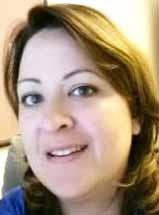April 9, 2014
By Haley Beets
Most think of college students as those who go to a university right out of high school. This is not always true, as some students come from diverse backgrounds and must balance several aspects of their lives, such as kids and jobs. These are non-traditional students.

“We all have to balance something,” senior Jen Coates said. “As a non-traditional student, I’m balancing being a wife and being a mom. Fortunately, I don’t have a job right now, so I’m able to spend a lot of that time with my schoolwork.”
Coates is currently enrolled as a full-time student with 16 credits. She’s an organizational communication major and will graduate this May after three years at UW-Whitewater.
Coates grew up in Arizona and earned 37 college credits after graduating high school. She left school in favor of her well-paying full-time job. As a child, she never had the necessity for a college education instilled in her, because neither of her parents went to college.
“When I moved here and I started a family, that’s when I found that you really do need that degree,” Coates said. “And I wanted to be a better example for my kids.”
Coates said she wants to be able to help her children make smart decisions about their education. She didn’t have the resources to learn about financial aid or potential career paths, so she wants to be that resource for her children.
Coates found many helpful resources for herself as a non-traditional student.
“I know that we have a great organization for non-traditional students, and I really appreciate it,” Coates said. “I think Lynn Smith has done a wonderful job coordinating activities and doing what she can to connect us with the university.”
Non-traditional student is usually synonymous with commuter student, so creating friendships is difficult. Non-traditional students are busy with their families or other jobs, but Coates said it’s critical for bonds to be formed with others on campus. The non-traditional organization can help forge those bonds.
“I would hate to know that there is a non-traditional student on campus that is trying to fight their way through this maze on their own without realizing that there is a great service here,” Coates said.
Bonding with professors is easier than bonding with younger students for Coates. She said most students view her as the “old person” in class, even though she said she has a lot in common with them.
“I have the same hopes and dreams and aspirations as they do,” Coates said. “It’s just in a different time frame.”
Professors are often closer in age and have similar life experiences. She said they talk about their children, spouses or past jobs.
One instructor Coates made an impression on was Bill Lowell. Coates has taken several organizational communication classes with Lowell.
“There is nothing traditional about her,” Lowell said. “Everything she did in class was always done to perfection, and she always worked hard.”
Lowell said Coates’ prior work experience was an asset to his classroom. She worked at the Watertown Hospital as a community outreach coordinator. Her job was keeping the hospital in touch with the public.
“Having her in a class is like having a co-instructor,” Lowell said. “Any time I started sharing, she always had a great example for the rest of the class.”
Coates said her success in school is because non-traditional students tend to take education to the extreme. They are there for more than a degree; they want an education.
In less than two months, Coates will graduate and leave her status as a non-traditional student. She hopes to get a job “as soon as possible” working in organizational communication, much like she did at the hospital in Watertown.

